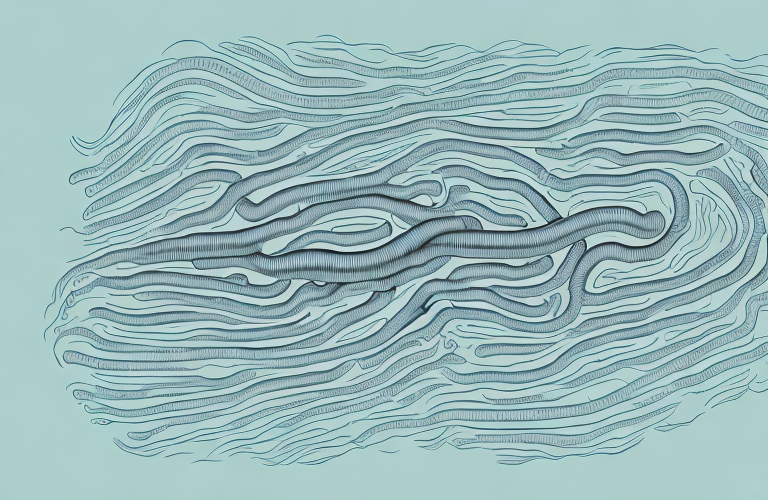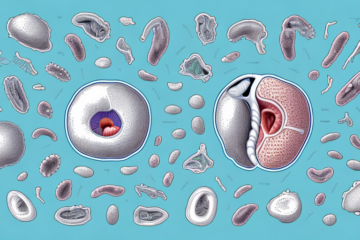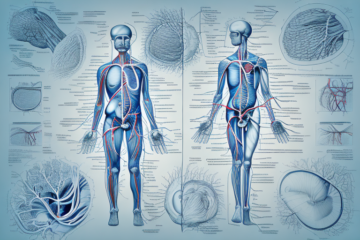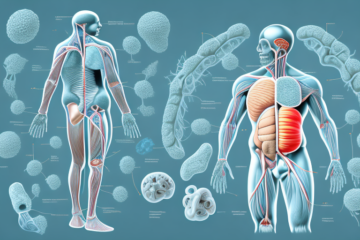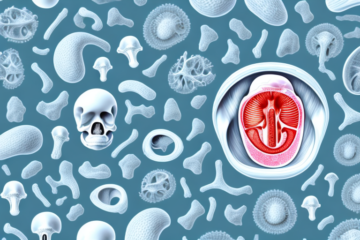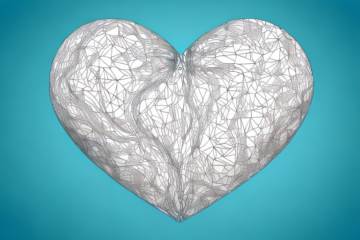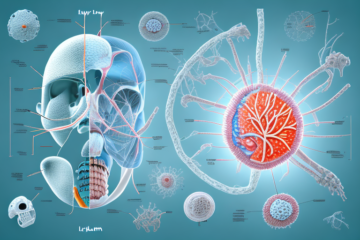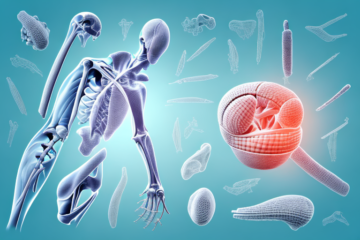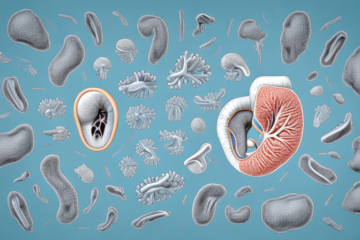The large intestine, also known as the colon, plays a crucial role in the digestive system. It is responsible for absorbing water, electrolytes, and vitamins, as well as storing and eliminating waste from the body. In this article, we will explore the function and anatomy of the large intestine, as well as common health problems that can affect it, and tips for keeping it healthy and functioning optimally.
What is the Large Intestine and Where is it Located?
The large intestine is part of the digestive system, along with the small intestine, stomach, and esophagus. It is located in the abdominal cavity and extends from the end of the small intestine to the rectum. The large intestine is approximately 5 feet long, and its diameter varies from 2.5 to 4 inches.
The large intestine is responsible for absorbing water and electrolytes from the remaining indigestible food matter, forming feces. It also houses a large number of bacteria that aid in the final stages of digestion and produce certain vitamins. The large intestine is divided into several parts, including the cecum, colon, and rectum, each with its own specific functions.
Understanding the Structure of the Large Intestine
The large intestine is divided into several parts, including the cecum, colon, and rectum. The cecum is the beginning of the large intestine, and it connects the small intestine to the colon. The colon is further divided into several regions, including the ascending colon, transverse colon, descending colon, and sigmoid colon. The rectum is the final part of the large intestine, and it connects to the anus.
The large intestine plays a crucial role in the digestive system by absorbing water and electrolytes from the remaining food matter. The colon, in particular, is responsible for this process, as it contains millions of bacteria that break down the remaining food particles and produce vitamins. These bacteria also help to maintain a healthy balance of microorganisms in the gut, which is essential for overall health and well-being.
The Anatomy of the Large Intestine: Colon, Cecum, and Rectum
The colon is further divided into four sections: the ascending, transverse, descending, and sigmoid colon. The ascending colon extends from the cecum, up the right side of the abdomen. The transverse colon crosses the abdomen from right to left. The descending colon travels down the left side of the abdomen, and the sigmoid colon is a short, S-shaped segment that connects the descending colon to the rectum.
The cecum is a small sac that connects the small intestine to the colon. It is located in the lower right side of the abdomen. The rectum is the final part of the large intestine, and it connects to the anus. The rectum stores feces until it is eliminated from the body through the anus.
The large intestine plays an important role in the digestive system by absorbing water and electrolytes from the remaining food matter that passes through it. The colon also houses a large number of bacteria that aid in the breakdown of food and the production of vitamins. In addition, the colon is responsible for the formation and elimination of feces, which is a waste product of the digestive process.
The Role of the Large Intestine in Digestion
The large intestine plays a crucial role in the digestion of food. While most digestion occurs in the small intestine, the large intestine absorbs water and electrolytes from the contents that are remaining. It also absorbs vitamins produced by gut bacteria. The large intestine helps to form feces by solidifying the waste products of digestion and pushing them towards the rectum.
In addition to its digestive functions, the large intestine also plays a role in the immune system. It contains a large number of immune cells that help to protect the body from harmful bacteria and other pathogens. These immune cells produce antibodies and other molecules that help to fight off infections and keep the gut healthy. The large intestine also contains specialized cells that produce mucus, which helps to lubricate and protect the intestinal lining from damage.
How Does the Large Intestine Absorb Nutrients?
The large intestine absorbs water, electrolytes, and vitamins. Electrolytes are important minerals such as sodium and potassium that the body requires to function properly, and which are present in body fluids. The large intestine also absorbs fat-soluble vitamins such as vitamin K2 and biotin, which are produced by gut bacteria. These nutrients are absorbed through the lining of the large intestine and transported to the liver and other parts of the body.
In addition to absorbing nutrients, the large intestine also plays a crucial role in the immune system. The lining of the large intestine contains lymphoid tissue, which produces antibodies and immune cells that help protect the body from harmful bacteria and viruses. This is why maintaining a healthy gut microbiome is so important for overall health.
Another important function of the large intestine is to eliminate waste from the body. As food moves through the digestive system, the large intestine absorbs the remaining water and electrolytes, leaving behind solid waste material that is then eliminated through the rectum and anus. This process is essential for maintaining a healthy balance of fluids and electrolytes in the body.
The Importance of Gut Microflora in the Large Intestine
The colon is home to a diverse population of microorganisms known as the gut microbiota. These bacteria play an essential role in maintaining the health of the large intestine and the body as a whole. The gut microbiota help to break down certain dietary fibers and produce short-chain fatty acids, which are important nutrients for the colon cells. They also help to prevent the growth of harmful bacteria, train the immune system, and produce important vitamins such as biotin, vitamin K2, and folate.
Recent research has also shown that the gut microbiota may have an impact on mental health. Studies have found a link between gut health and conditions such as anxiety and depression. This is because the gut microbiota produces neurotransmitters such as serotonin, which are important for regulating mood. Therefore, maintaining a healthy gut microbiota through a balanced diet and probiotic supplements may not only benefit physical health but also mental well-being.
Health Problems that can Affect the Large Intestine
While the large intestine is a vital part of the digestive system, it is also susceptible to a variety of health problems. Some common health problems that can affect the large intestine include:
- Irritable bowel syndrome (IBS)
- Inflammatory bowel disease (IBD)
- Diverticulitis
Another health problem that can affect the large intestine is colorectal cancer. This type of cancer can develop in the lining of the large intestine and can be life-threatening if not detected and treated early. Symptoms of colorectal cancer include abdominal pain, rectal bleeding, and changes in bowel habits.
Additionally, a condition called ulcerative colitis can also affect the large intestine. This is a chronic inflammatory disease that causes inflammation and ulcers in the lining of the colon and rectum. Symptoms of ulcerative colitis include abdominal pain, diarrhea, and rectal bleeding. Treatment for ulcerative colitis may include medication, dietary changes, and surgery in severe cases.
Common Disorders of the Large Intestine: IBS, IBD, and Diverticulitis
IBS is a common disorder that affects the large intestine. It is characterized by a group of symptoms that include abdominal pain, bloating, constipation, and diarrhea. While the cause of IBS is not entirely understood, stress and dietary factors can exacerbate symptoms.
IBD is a chronic autoimmune disease that affects the large intestine and small intestine. It results in inflammation of the intestinal lining, causing abdominal pain, diarrhea, and rectal bleeding. Crohn’s disease and ulcerative colitis are two types of IBD that can cause severe ulcers and scars in the intestine.
Diverticulitis is another common disorder that affects the large intestine. It occurs when small, bulging pouches called diverticula form in the colon and become inflamed or infected. Symptoms include abdominal pain, fever, and changes in bowel movements.
In addition to these common disorders, there are other conditions that can affect the large intestine. These include colorectal cancer, which is the third most common cancer in the world, and inflammatory bowel disease (IBD) associated arthritis, which causes joint pain and stiffness in people with IBD. It is important to seek medical attention if you experience any symptoms related to the large intestine, as early detection and treatment can improve outcomes.
What Causes Colon Cancer and How to Prevent It
Colon cancer is one of the most common types of cancer in both men and women. It occurs when cells in the colon or rectum begin to grow uncontrollably, forming a tumor. While the exact cause of colon cancer is unknown, factors such as a family history of colon cancer, inflammatory bowel disease, and a diet high in red meat and processed foods can increase the risk.
To prevent colon cancer, it is important to maintain a healthy diet high in fiber, limit the consumption of red meat and processed foods, and exercise regularly. Regular screenings, such as colonoscopies, can also help to detect and treat colon cancer early.
In addition to these preventative measures, there are also certain lifestyle changes that can help reduce the risk of colon cancer. Quitting smoking and limiting alcohol consumption can both have a positive impact on colon health. It is also important to manage stress levels, as chronic stress has been linked to an increased risk of colon cancer.
Tips for Keeping Your Large Intestine Healthy and Functioning Optimally
The following tips can help to keep your large intestine healthy and functioning optimally:
- Eat a healthy, balanced diet high in fiber and rich in fruits and vegetables.
- Limit the consumption of red meat and processed foods.
- Stay hydrated by drinking plenty of water and avoiding excessive alcohol and caffeine intake.
- Exercise regularly to promote healthy digestion and bowel movements.
- Ensure adequate sleep and manage stress levels to prevent exacerbation of digestive symptoms.
- Attend regular colon cancer screenings, particularly if you have a family history of the disease.
In conclusion, the large intestine is a vital organ within the digestive system, responsible for absorbing water, electrolytes, and nutrients, as well as storing and eliminating waste from the body. Maintaining a healthy diet and lifestyle, staying hydrated, and attending regular screenings can help to promote optimal function and prevent the development of health problems.
Another important factor in maintaining a healthy large intestine is to avoid smoking and exposure to secondhand smoke. Smoking has been linked to an increased risk of colon cancer and can also cause inflammation in the digestive tract.
In addition, it is important to be aware of any changes in bowel habits or symptoms such as abdominal pain, bloating, or rectal bleeding. These could be signs of a more serious condition such as inflammatory bowel disease or colon cancer and should be evaluated by a healthcare professional.

